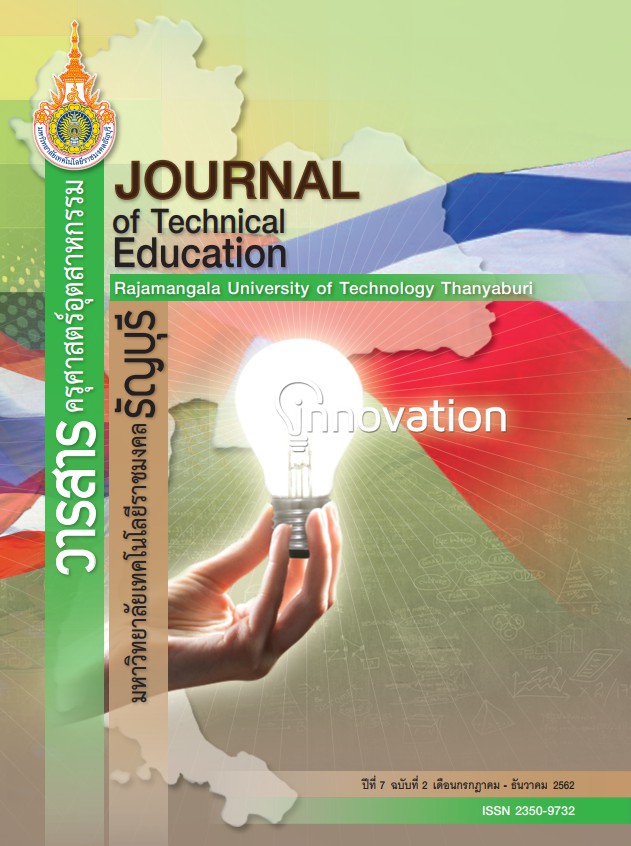Disparity in the Availability of Vocational High Schools with Developmental Needs Based on Regional Superior Potential
คำสำคัญ:
ความสัมพันธ์, โรงเรียนมัธยม, อาชีวศึกษา, การพัฒนาศักยภาพบทคัดย่อ
สาเหตุของการว่างงานในผู้สำเร็จการศึกษาระดับอาชีวศึกษาเกิดจากแนวโน้มการจัดหาแรงงานของชุมชนไม่สอดคล้องกับชุมชน ผู้สำเร็จการศึกษามีความสามารถในระดับต่ำ จำเป็นต้องมีการพัฒนาศักยภาพหลักสูตรที่มีความเชี่ยวชาญ และผู้สำเร็จการศึกษามีความต้องการเพิ่มระดับศักยภาพของการศึกษาสายอาชีพ ที่มีกลยุทธ์ในการเร่งการพัฒนาในระดับภูมิภาคด้วยการเปิดโอกาสในการเพิ่มกิจกรรมทางเศรษฐกิจความต้องการแรงงานและความต้องการของผู้สำเร็จการศึกษาระดับมัธยมปลายอาชีวศึกษา การเชื่อมโยงที่เหมาะสมและการแข่งขันของโรงเรียนมัธยมอาชีวศึกษา ที่อาจเกิดขึ้น การวิจัยครั้งนี้มีวัตถุประสงค์เพื่อศึกษาความแตกต่างในความพร้อมของโรงเรียนมัธยมอาชีวศึกษาที่มีความต้องการการพัฒนาตามศักยภาพของภูมิภาคใน West Bandung Regency ข้อมูลเกี่ยวกับความพร้อมของโรงเรียนมัธยมอาชีวศึกษาได้รับจากเว็บไซต์อย่างเป็นทางการของผู้อำนวยการฝ่ายพัฒนาโรงเรียนมัธยมอาชีวศึกษา ศักยภาพท้องถิ่นส่วนใหญ่ที่มีอยู่ใน West Bandung Regency อยู่ในภาคการเกษตร ศักยภาพนี้มีอิทธิพลต่อการครอบงำของเศรษฐกิจ ได้แก่ ธุรกิจการเกษตรและเทคโนโลยีชีวภาพปศุสัตว์การเพาะปลูกและการแปรรูปอาหารเครื่องดื่ม นอกจากนี้อุตสาหกรรมสร้างสรรค์และการท่องเที่ยวก็เป็นเรื่องปกติ มีโรงเรียนอาชีวศึกษา 91 แห่งในบันดุงตะวันตกซึ่งประกอบด้วยความเชี่ยวชาญ 6 ด้านความเชี่ยวชาญ 15 หลักสูตรและความ เชี่ยวชาญ 201 ทักษะ ความแตกต่างสูงระหว่างความพร้อมของโรงเรียนมัธยมอาชีวศึกษาที่มีศักยภาพทางเศรษฐกิจพอุตสาหกรรมจะปรากกให้เห็นความต้องกและศักยภาารในการพัฒนาโปรแกรมที่มีความเชี่ยวชาญให้สอดคล้องกับศักยภาพที่สูงขึ้นของภูมิภาค
เอกสารอ้างอิง
S. Scarpetta, A. Sonnet, and T. Manfredi, “Rising Youth Unemployment During The Crisis: How to Prevent Negative Long-Term Consequences on a Generation?,” OECD Soc. Employment Migr. Work. Pap., no. 106, pp. 9–34, 2010.
Central Bureau of Statistics, Indonesian Labor Conditions Agustust 2018. 2018, pp. 1–6.
A. Kayode, S. Arome, and S. F. Anyio, “The Rising Rate of Unemployment in Nigeria : the Socio-Economic and Political Implications,” Glob. Bus. Econ. Res. J., vol. 3, no. 1, pp. 68–89, 2016.
M. Vansteenkiste, W. Lens, H. De Witte, and N. T. Feather, “Understanding Unemployed People’s Job Search Behaviour, Unemployment Experience, and Well-Being: A Comparison of Expectancy-Value Theory and Self-Determination Theory,” Br. J. Soc. Psychol., vol. 44, no. 2, pp. 269–287, 2005.
P. Slamet, “Pengembangan SMK Model Untuk Masa Depan,” J. Cakrawala Pendidik., vol. 32, no. 1, pp. 14–26, 2013.
B. J. Zimmerman, Integrating classical theories of self-regulated learning. A cyclical phase approach to vocational education, vol. 20. 2006.
V. A. Fedorov and N. V. Tretyakova, “The development of vocational pedagogical educationin Russia (organizational and pedagogical aspect),” Int. J. Environ. Sci. Educ., vol. 11, no. 17, pp. 9803–9818, 2016.
E. Mardiharini, Maesti dan Jamal, “Performance and Development Prospect of Agroindustry in National Agricultural Development Perspective,” Anal. Kebijak. Pertan., vol. 10, no. 1, pp. 75–86, 2012.
A. Mukhdis, A. B. N. R. Putra, A. M. Nidhom, A. Dardiri, & H. Suswanto, “Guide to Aligning the Field of Expertise in Vocational Schools with Priority for Regional Potential and the Workforce,” Ministry of Education and Culture of Indonesia, 2017.
M. B. Miles and A. M. Huberman, “Drawing Valid Meaning from Qualitative Data: Toward a Shared Craft,” Educ. Res., vol. 13, no. 5, pp. 20–30, 2007.
Central Bureau of Statistics, West Bandung Regency in 2015 Figures. 2015.
UNESCO, Greening Technical and Vocational Education, and Training: a Practical guide for Institutions. International Centre for Technical and Vocational Education and Training. 2017.
Mohamed, S., Eid. "Experimental Investigation and Theoretical Model Approach on Transmission Efficiency of the Vehicle Continuously Variable Transmission.” American Journal of Vehicle Design. vol 2, no 1, pp. 43-52. 2014.
ดาวน์โหลด
เผยแพร่แล้ว
รูปแบบการอ้างอิง
ฉบับ
ประเภทบทความ
สัญญาอนุญาต
บทความที่ได้รับการตีพิมพ์เป็นลิขสิทธิ์ของมหาวิทยาลัยเทคโนโลยีราชมงคลธัญบุรี
ข้อความที่ปรากฏในบทความแต่ละเรื่องในวารสารวิชาการเล่มนี้เป็นความคิดเห็นส่วนตัวของผู้เขียนแต่ละท่านไม่เกี่ยวข้องกับมหาวิทยาลัยเทคโนโลยีราชมงคลธัญบุรี และคณาจารย์ท่านอื่นๆในมหาวิทยาลัยฯ แต่อย่างใด ความรับผิดชอบองค์ประกอบทั้งหมดของบทความแต่ละเรื่องเป็นของผู้เขียนแต่ละท่าน หากมีความผิดพลาดใดๆ ผู้เขียนแต่ละท่านจะรับผิดชอบบทความของตนเองแต่ผู้เดียว




